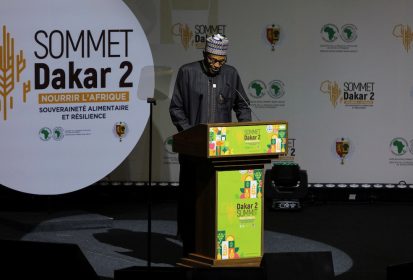Development partners have committed US$30 billion to boost food production in Africa over the next five years, the president of the African Development Bank said on Friday at the close of a summit on food security on the continent.
The continent is facing its worst food crisis ever, with more than one in five Africans — a record 278 million people — facing hunger, according to United Nations estimates.
A major theme of the three-day summit in the Senegalese capital Dakar was that African countries need to boost their food production capacity rather than relying on imports that have left them vulnerable to price spikes and shortages.
The meeting brought together African leaders, development banks and international partners including the United States, the European Union and Britain to mobilize funding and political commitment.
Around 40 countries from across the continent presented agricultural development plans to the bank and other partners, who pledged support for the plans over the next five years to enable the countries to increase food production.
“We’re going to invest in markets, we are going to invest in infrastructure, energy, we’re going to invest in roads, we’re going to invest in storage, all the things that you need to make agriculture work,” African Development Bank president Akinwumi Adesina told Reuters in an interview.
“We must make sure that agriculture allows people to feed themselves. That’s the core of what we are doing here. It’s embarrassing that Africa is not able to feed itself,” Adesina said.
Heavy debt burdens from the COVID-19 pandemic and the war in Ukraine, which raised prices of fuel, grain and edible oils, have added to long-term causes of food insecurity such as climate change and conflict, experts say.
The Ukraine war also disrupted the supply of fertilizer to the continent, pushing prices beyond the reach of farmers.
The bank last year reached a deal and got assurances from fertilizer manufacturers on the continent including Nigeria’s Dangote and Indorama, and Morocco’s OCP that Africa will not be marginalized in the fertilizer supply chain, Adesina said, adding that the bank had made investments in the manufacturers.
“I think we will not have a fertilizer crisis in Africa. The challenge we’re going to have is affordability problem,” he said, adding that governments would have to put support measures in place to make fertilizer affordable for farmers.








